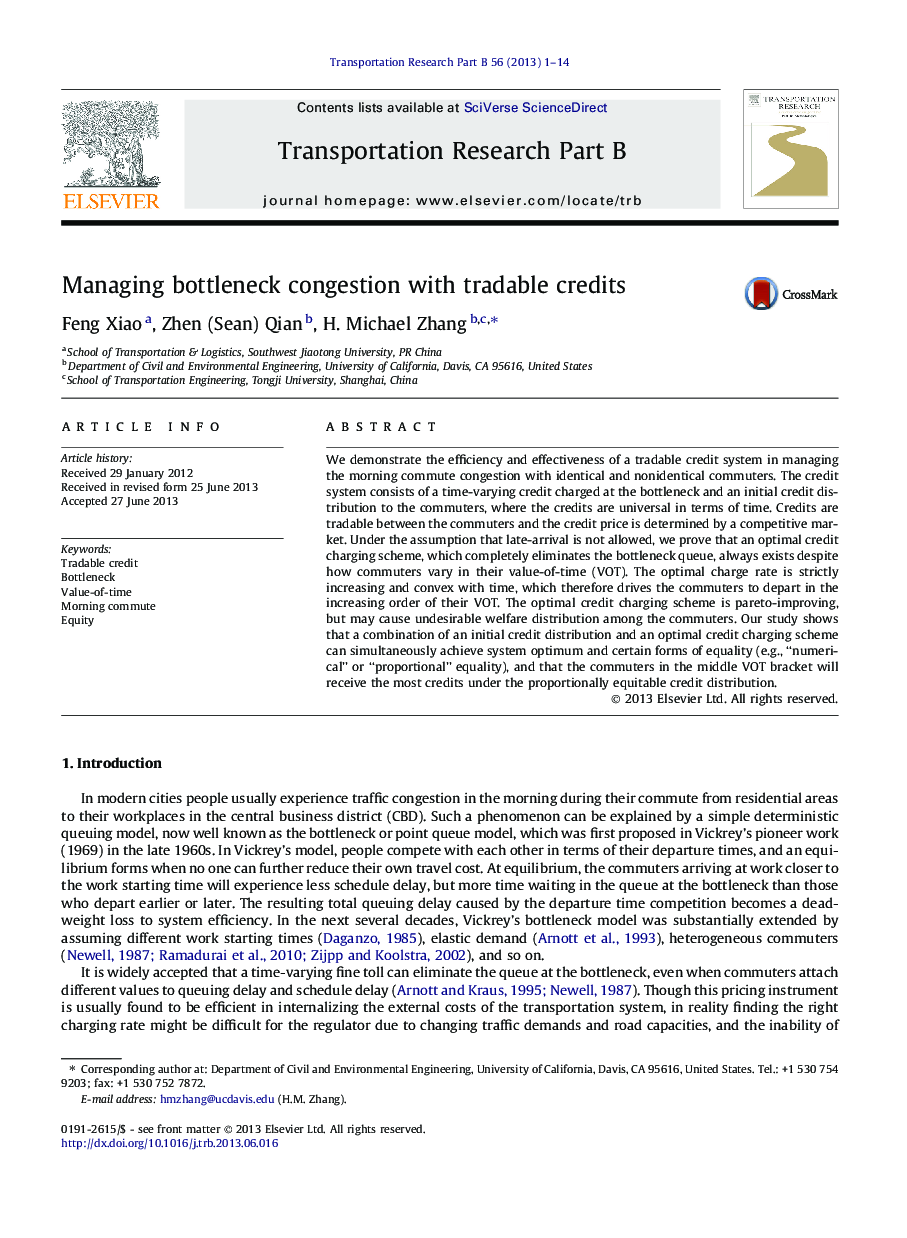| Article ID | Journal | Published Year | Pages | File Type |
|---|---|---|---|---|
| 1132143 | Transportation Research Part B: Methodological | 2013 | 14 Pages |
Abstract
We demonstrate the efficiency and effectiveness of a tradable credit system in managing the morning commute congestion with identical and nonidentical commuters. The credit system consists of a time-varying credit charged at the bottleneck and an initial credit distribution to the commuters, where the credits are universal in terms of time. Credits are tradable between the commuters and the credit price is determined by a competitive market. Under the assumption that late-arrival is not allowed, we prove that an optimal credit charging scheme, which completely eliminates the bottleneck queue, always exists despite how commuters vary in their value-of-time (VOT). The optimal charge rate is strictly increasing and convex with time, which therefore drives the commuters to depart in the increasing order of their VOT. The optimal credit charging scheme is pareto-improving, but may cause undesirable welfare distribution among the commuters. Our study shows that a combination of an initial credit distribution and an optimal credit charging scheme can simultaneously achieve system optimum and certain forms of equality (e.g., “numerical” or “proportional” equality), and that the commuters in the middle VOT bracket will receive the most credits under the proportionally equitable credit distribution.
Keywords
Related Topics
Social Sciences and Humanities
Decision Sciences
Management Science and Operations Research
Authors
Feng Xiao, Zhen (Sean) Qian, H. Michael Zhang,
